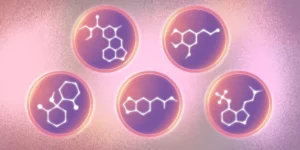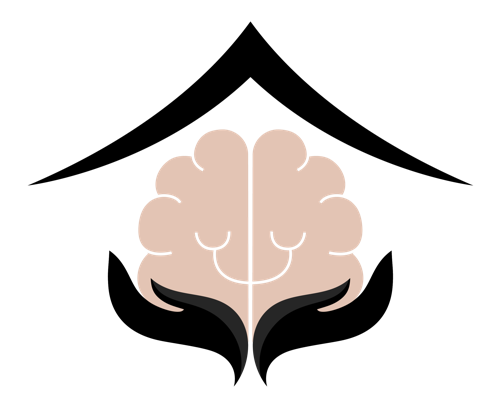Welcome to the psychedelic showdown of the century! In this corner, we have the dissociative heavyweight Ketamine, and in the opposing corner, the empathogenic dance-floor master MDMA. Today, we’ll explore their therapeutic potential in battling the ever-so-pervasive ailments of depression and anxiety. These two psychedelic contenders are making waves in the world of mental health, but which one will be the champion in reducing anxiety and depression?

Entering the Ring: Ketamine and MDMA
Before we dive into their therapeutic applications, let’s get to know our contenders. Ketamine, the champion of dissociation, began its career as a surgical anesthetic in the 1960s. Its hallucinogenic properties didn’t go unnoticed, and it soon gained a reputation as a party drug. However, recent studies have highlighted Ketamine’s astonishing ability to alleviate severe depression rapidly.
In the other corner, MDMA, short for 3,4-Methylenedioxy-Methamphetamine and most commonly known as Ecstasy or Molly, is a synthetic molecule that enhances feelings of empathy, love, and emotional closeness. It has long been a favorite on the dance floor but has made headlines for its impressive capacity to heal trauma, particularly PTSD.
In-the-Moment Mood Boosters
The immediate effects of Ketamine and MDMA on mood are strikingly different due to their diverging chemical pathways. Ketamine provides an intense dissociative experience that may lead to profound shifts in perception, self-awareness, and consciousness, departing users from their current emotional state. This property is instrumental in its effectiveness in providing swift depression relief.
On the other hand, MDMA lights up the neurotransmitters responsible for feelings of happiness, love, and connection. Time on MDMA is often characterized by emotional euphoria and deep, meaningful interactions with others. This emotional openness allows for the processing of traumatic experiences.
Long-term Effects on Depression and Anxiety
The real test of these psychedelic contenders lies in their long-term impact on anxiety and depression. For Ketamine, its powerful therapeutic potential includes rapid reductions in depressive symptoms within hours of administration. These antidepressant effects often last for several days to a week. Maybe even two weeks, depending on the individual.
Meanwhile, MDMA’s forte lies in its ability to facilitate deep, transformative healing for individuals struggling with PTSD and other trauma-related issues. The profound effects of MDMA-assisted psychotherapy can offer lasting relief from anxiety and depression, especially when the root cause is trauma-related. However, its impact on mood disorders caused by other factors is less established.
The Treatment Setting
When it comes to therapeutic use, the setting and approach for Ketamine and MDMA treatments are dramatically different. Ketamine is often administered via infusion in a clinical environment or at home, using an oral form of ketamine, while the user remains relatively passive throughout the experience. In contrast, MDMA-assisted psychotherapy sessions involve active emotional processing facilitated by trained therapists who guide users through their emotional landscapes.
Potential Risks
Like any therapy or drug, Ketamine and MDMA have potential risks associated with their use. Ketamine, for instance, may cause elevated blood pressure or dissociative “out-of-body” experiences that can be distressing for some individuals. With MDMA, there is a risk of “come-down” effects, such as depression or anxiety in the days following a session, as well as potential adverse effects on the heart and overheating in cases of recreational use.
At the end of this psychedelic showdown, it seems that the champion of mental health is determined by the specific needs and circumstances of the individuals seeking treatment. Ketamine emerges as a strong contender for quickly alleviating severe depression, while MDMA shines in its capacity to heal trauma and PTSD-related anxiety. There’s no one-size-fits-all winner, but both psychedelics hold incredible potential to revolutionize mental health care. As research continues, it’s exciting to be alive and witness the psychedelic renaissance unfold. So, let the psychedelic healing exploration continue!



